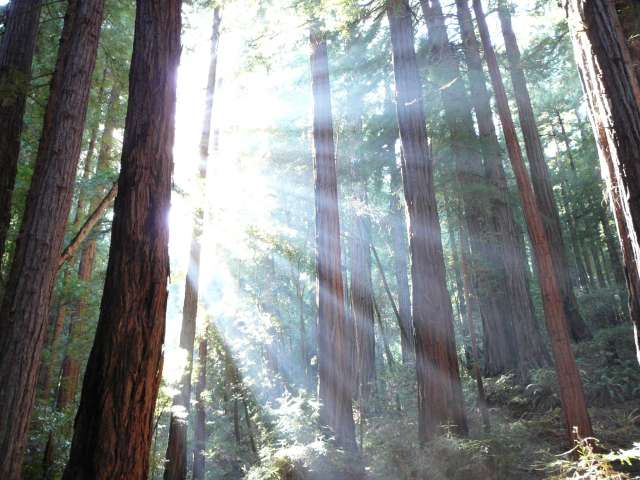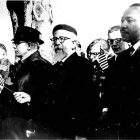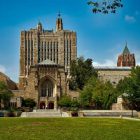Highlighting the mystery of a new wholeness in community, text, organization or a piece of artwork.
Rethinking Religion
Remembering the teaching of Abraham Joshua Heschel
|
Susannah Heschel remembers Abraham Joshua Heschel, his empathy, his hope, and his faith.
Gender_&_Sexuality
Reflections on Theology from an Anglo-Jewish Feminist Perspective
|
Goddess and God in the World: Conversations in Embodied Theology by Carol P Christ and Judith Plaskow.
Uncategorized
The Scholar as Poet: Remembering Geoffrey Hartman
|
The work of the longtime scholar, writer, and prolific poet is revered in reflections on a long-time scholarly and personal connection by one of America’s wisest interpreters of 20th and 21st century culture.
Articles
Homo Moralis
|
HOMO MORALIS
A Review of Yuval Noah Harari’s Sapiens: A Brief History of Humankind and Homo Deus: A Brief History of Tomorrow
Barry L. Schwartz
A child asked his mother, “Where do people come from?”
“Well,” the mother said, “Adam and Eve were the first parents on earth. They had babies who became grownups. Then those grownups had babies who eventually became grownups, and so on and so forth, until today.”
Later, the child decided to ask his father the same question. The father had a different explanation. “Long ago, there were no people on earth-just monkeys.
Articles
High Holidays with Rabbi Michael Lerner & Beyt Tikkun
|
The spiritual task of the ten days that start the eve of Rosh Hashanah, Wednesday Sept. 20 (10 days from now) and continue to its climax on Yom Kippur is to delve seriously into what changes we need in the way we conduct our own lives and changes that our society needs. Beyt Tikkun provides a support system for taking this task seriously. Our services have all the elements of the Jewish tradition including the traditional prayers and music, but we combine those with deep inner reflection, mediation, and inner work because the goal is “t’shuvah” (returning to our hightest selves in every dimension of our lives). Info and to Register: www.beyttikkun.org/hhd
Toward that t’shuvah goal and reflection, participants in our High Holiday services are given a work book to use in the intervening days between Rosh Hashanah and Yom Kippur.
Editorials & Actions
Commentary on one of the more difficult readings in Torah by Lisa Rappaport
|
[Editor’s note: Some of the weekly Torah readings–called the weekly parasha– are hard to relate to, and this past week’s reading, Parshat Tazria/Metzorah, is among them. More difficult. Rabbinic student in the Aleph program Lisa Rappaport gave one of the most interesting approaches to it I haveve encountered, so I am sharing it with our readers.–Rabbi Michael Lerner]
Parashat Tazria-Metzora
Lisa Rappaport
4/29/17
This week’s parasha, Tazria-Metzora, is challenging, with parts that seem completely unrelatable to our lives. It is in this parasha that we learn about tzaarat, a spiritual affliction causing a white discoloration of the skin. It is often translated (or rather mistranslated) as leprosy. But leprosy is a physical condition with a physical cause, while tzaarat is a spiritual affliction that renders the sufferer tameh, or ritually impure.
Articles
Passover and the Wisdom of NOT Knowing
|
Passover and The Wisdom of “Not Knowing”
by Estelle Frankel
“Great questioning, great awakening; little questioning, little awakening; no questioning, no awakening.”—Zen saying
Albert Einstein once confessed that he had no special talent and attributed his success as a scientist to the simple fact that he was passionately curious. Curiosity, our innate impulse to wonder about things unknown, is the key to all learning and growth. It is also the fuel that drives our exploratory and adventurous impulses. When we embark on an adventure or try new things curiosity helps us overcome our fears of the unknown and unfamiliar. We were all curious as children, but for some of us this innate impulse was squelched by well-meaning but misguided adults who discouraged us from asking too many questions.
Articles
Join Us for a Liberation Passover Seder on Tues. April 11 (2nd Seder night) with Emma’s Revolution
|
Join Us for A Liberation Passover Seder on Tuesday, April 11 (the 2nd Seder night) at 6:00 pm in Berkeley
Special Guests: Emma’s Revolution
Register now: www.beyttikkun.org/seder. Registration closes Monday, April 3rd
We survived Pharaoh in Egypt–we can survive and even triumph over the contemporary Pharaoh’s in Washington D.C. and Wall Street, Syria, Saudi Arabia, Russia, Iran, China, Egypt, Gaza, Israel, Turkey, Korea, the Philippines, and many other places around the world! The ancient Israelites didn’t believe salvation was possible, but it was–and so it will be in our own times, though things look dark and discouraging at the moment as we enter another month of the Trump Administration (most recently dismantling the environmental protections that so many of us campaigned for years to get our government to create). Come participate and revive your hopeful energies for the struggles ahead!!!! This Seder is for people of all faith traditions who wish to recommit to the struggles for liberation and re-affirm your commitment to a world of love, generosity, justice, environmental sustainability and nonviolence!
Editorials & Actions
Join us for a Liberation Passover Seder. With Emma’s Revolution
|
Join Us for A Liberation Passover Seder on Tuesday, April 11 (the 2nd Seder night) at 6:00 pm in Berkeley
Special Guests: Emma’s Revolution
Register now: www.beyttikkun.org/seder. Registration closes Monday, April 3rd
We survived Pharaoh in Egypt–we can survive and even triumph over the contemporary Pharaoh’s in Washington D.C. and Wall Street, Syria, Saudi Arabia, Russia, Iran, China, Egypt, Gaza, Israel, Turkey, Korea, the Philippines, and many other places around the world! The ancient Israelites didn’t believe salvation was possible, but it was–and so it will be in our own times, though things look dark and discouraging at the moment as we enter another month of the Trump Administration (most recently dismantling the environmental protections that so many of us campaigned for years to get our government to create). Come participate and revive your hopeful energies for the struggles ahead!!!! This Seder is for people of all faith traditions who wish to recommit to the struggles for liberation and re-affirm your commitment to a world of love, generosity, justice, environmental sustainability and nonviolence!
Articles
Shaul Magid on Levinas and Zionism
|
You can read this online at:
www.tikkun.org/newsite/shaul-magid-on-levinas-and-zionism
Emmanuel Levinas, the Political, and Zionism: Michael Morgan’s Levinas’s Ethical Politics, a Review Essay
by Shaul Magid,
Indiana University/Bloomington
I
When I was a graduate student in Jewish thought and philosophy in Israel and the U.S. in the late 1980s and early 1990s we were all reading Emmanuel Levinas. Some of his major works had recently been translated into English and Hebrew (all were written in French) and his dual commitment to continental philosophy and Judaism made him, for many of us, the Franz Rosenzweig of our generation. Levinas quickly became a cottage industry among American scholars of Judaism, from those interested in Rabbinics who read his Nine Talmudic Readings, to those interested in phenomenology and ethics who read Totality and Infinity, Otherwise than Being and Time and the Other, to those who were interested in a philosophically sophistical apologia for Judaism who read his In the Time of the Nations and Difficult Freedom. Dissertations were written about him, journals were full of essays on his work, and a North American Levinas Society was established in 2006 with conferences and symposia. Levinas stood at the center of Jewish philosophical though for at least two decades.
Editorials & Actions
Jacob Neusner: In Memoriam by Shaul Magid
|
Jacob Neunser: In Memoriam
Shaul Magid,
Indiana University/Bloomington
Jacob Neunser (1932-2016) died early shabbat morning of Shabbat Shuva, the Shabbat between Rosh Ha-Shana and Yom Kippur. The New York Times called him the most published individual in history. In his excellent book, Jacob Neusner: An American Jewish Iconoclast (NYU Press, 2016) Aaron Hughes suggests he is the greatest Jewish scholar of Judaism born in the United States. Whether either of these claims are true, and they are certainly reasonably so, he was surely one of the most towering figures in the study of Judaism in the past half century. An irascible and often difficult personality, Jacob Neusner could also be extremely generous toward those with whom he shared mutual interest.
Editorials & Actions
Philip Cushman on Rosh Hashanah 2016
|
Rosh Hashanah, 2016
Philip Cushman
The Akedah, the Binding of Isaac, is one of the most disturbing stories in the Hebrew Bible. In it, Abraham was instructed by what he thought was God’s voice to make a human sacrifice of his son, Isaac. At the last second, God interceded, speaking through a malach, an angel, to stop him. Predictably, the midrashic rabbis of late antiquity devoted many stories to its interpretation. What are we to make of it? And why was this passage of all passages chosen, on this the beginning of the Days of Awe, for us to read and wrestle with? Erich Fromm, a 20th century philosopher and psychoanalyst ¾ and not coincidentally a former yeshiva buchar ¾ reminds us that the stories in the Hebrew Bible are not prescriptive, they are descriptive; they describe and demonstrate understandings of God, humans, and the relation betweeen the two. For instance, the Garden of Eden story is not in Jewish tradition a theory about Original Sin, and it is not thought to be a Fall (as it is in Christian traditions). Instead, Fromm teaches, it is a story about how animals became human: in some mysterious way, humans gained the capacity to be conscious, to know the difference between good and evil, thus aquiring the ability to notice the separateness between people, feel vulnerable, and make moral choices. Similarly, the Akedah can be interpreted as a story about how humans came to confront and then forbid the hideousness of human sacrifice. There are, of course, many many prescriptions in the Torah, but for the most part, mercifully, the mythopoeic stories in Beresheet are not. The Akedah to this day has much to teach us about the folly of communities and parents who sacrifice their children because of some well-meaning but tragically flawed fantasy.
Editorials & Actions
Preparing to Repent?
|
Elul, the month before Rosh Hashanah and Yom Kippur, has traditionally been a time to prepare for teshuva (repentance, self and world transformation, returning to one’s highest self). In preparation, we will be providing a variety of “takes” on this process. We also invite those who do not have a spiritual home to consider attending Rabbi Lerner’s High Holiday services–info available at www.beyttikkun.org/highholidays. And if you have a poem, prayer, or thought piece that you feel would benefit others in this process, send it to RabbiLerner.tikkun@gmail.com (he might use it at the Beyt Tikkun service or, space allowing, on our website).
Ron Hirsch
Reflections on Yom Kippur and Mideast Peace
As Jews around the world observe Yom Kippur, at levels of ritual observance ranging from the Haridim at the Wailing Wall to a reform temple in the U.S. Midwest to those who do not go to synagogue but in some way observe the Day of Atonement, it is important for each individual, for Israel, and for the world that the observance go deeper than even the most fervent practice of ritual and belief.
For Yom Kippur to have its intended impact, each person must understand and experience the spiritual lessons and meaning of Yom Kippur. What are those lessons?
Editorials & Actions
Shmuley Boteach: It’s Time for Jews To Proselytize
|
Editor’s Note: America’s most famous right wing Republican rabbi is a very decent human being in his personal life even as he publicly supports cut backs in services and financial assistance to the poor and supports the repressive policies of the Israeli government toward Palestinians. And below in his article about proselytizing he makes some points worthy of discussion. There are many people in the Bay Area where I have our progressive Beyt Tikkun synagogue who would gain a huge amount from exposing themselves to the variant of Judaism we embody if they were to convert and become part of our community. Moreover, we would gain a lot–because I’ve found that converts to Judaism (including born-Jewish-but-not-practicing-Jews) often bring with them sensibilities and consciousness that elevates the Jewish world. If you know someone looking for a deep spiritual consciousness and who simultaneously wants to be involved in social justice, environmental sanity, and building a world of love and generosity, ask them to attend our High Holiday services this coming October (info at www.beyttikkun.org)–they’ll find a wonderful group of people creating a Judaism that is both liberatory and transformative.– Rabbi Michael Lerner rabbilerner.tikkun@gmail.com
It’s Time for the Jews to Proselytize
By Rabbi Shmuley Boteach
No matter how you look at the demographic studies, one thing is clear, the number of Jewish people is not increasing as we continue to lose Jews and potential Jews every day through intermarriage, assimilation, and alienation.




